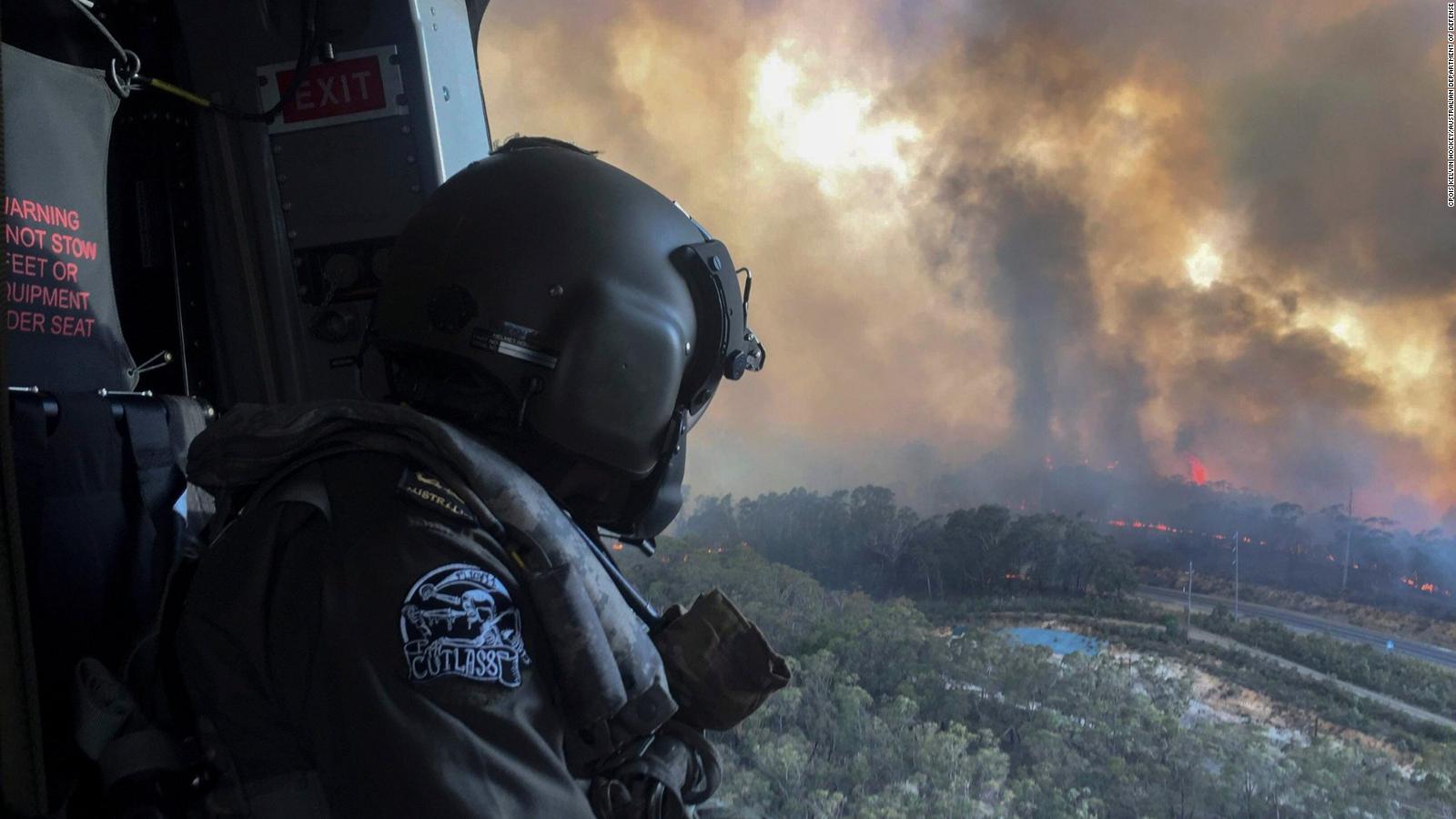In some parts of South Australia, authorities have raised a "severe" fire danger rating, which advised residents that evacuating early was "the safest option" for their survival.
Temperatures were forecast to peak at a maximum of 38 degrees Celsius (100.4 Fahrenheit) in the state capital, Adelaide, on Saturday and Sunday, potentially rising to 40 Celsius (104 Fahrenheit) on Monday, according to Australia's Bureau of Meteorology (BOM).
The heat wave was scheduled to reach the eastern part of the country over the weekend, according to CNN Weather producer Taylor Ward.
"Over the weekend the heat will build over Victoria and New South Wales, gradually reaching all the way to the Sydney area by Monday," he said. "Temperatures and the fire threat will increase as we head through the weekend, with the worst conditions expected for the fire-plagued areas of eastern New South Wales on Monday and Tuesday."
Melbourne, capital of Victoria state, could hit 41 Celsius (105.8 Fahrenheit), on Monday, the BOM said on its website.
Deadly wildfires
For over two months, deadly bushfires have been burning out of control across Australia and engulfing whole towns, exacerbated by strong winds and rising temperatures.
By December 21, a total of nine people had died, with one missing, and nearly 800 homes had been destroyed by the fires. On December 19, two volunteer firefighters were killed while battling the blazes in New South Wales. It's believed their vehicle hit a tree before rolling off the road, said the New South Wales Rural Fire Service (NSWRFS) in a statement last week.
Australia has experienced one of the worst droughts in decades and sweltered under a record-breaking heat wave last week, when the average maximum temperature across the country hit 41.9 degrees Celsius (107.4 Fahrenheit).
The NSWRFS said that although firefighters have now contained half of the 72 bush fires still burning across the state, a fresh heat wave could pose a renewed threat.
"Our main focus at this stage is making sure we have strengthened the containment line, especially those to urban areas," said James Orris, a spokesman for the service.
He said some 1,500 firefighters have been deployed, and the priority was to control the fires to the northwest and southwest of Sydney, which it said were the most threatening for residents.
The fires have also threatened koalas living in the wild. In a photo on Facebook, firefighters in Hawkesbury, New South Wales were seen pulling two koalas to safety next to a highway.
In response to the heat wave, the South Australian government said it was providing more shelter options and had extended operating hours to cater for the homeless.
"Keeping vulnerable South Australians safe and well in the extreme heat forecast over the next few days is our priority," said Michelle Lensink, who heads the state's government services.
In a statement, the State Emergency Service has also urged the public to remain vigilant and drink plenty of water to remain hydrated.
"If you have to leave the car, even for a few minutes to run a quick errand or drop into a shop, make sure you take your children and pets with you," said Chris Beattie, chief officer of the emergency service.
"Hot cars kill, so there are no excuses and no exceptions. Because of their low body mass, children and pets are especially at risk. They lose fluids quicker and can become dehydrated very quickly."
Bagikan Berita Ini
















0 Response to "Australia on alert as new heat wave threatens to make deadly bushfires worse"
Post a Comment